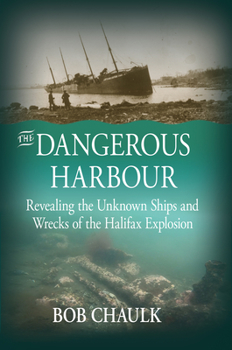The Dangerous Harbour: Revealing the Unknown Ships and Wrecks of the Halifax Explosion
Scuba diver and author of Atlantic's Last Stop uses records and personal experience to examine the vessels in Halifax Harbour on the day of the 1917 Explosion to uncover what happened that day -- and why.
On the morning of December 6, 1917, ships and boats were in constant movement in Halifax Harbour. The First World War was in its fourth year and Halifax, the closest mainland North American naval port to Europe, was feeling its effect.
At 8:45 A.M., the SS Mont-Blanc and the SS Imo collided. Minutes later, a powerful explosion devastated the city. Not only were homes and businesses devastated and civilians killed; when the explosion occurred, there were roughly two hundred vessels in the harbour, from warships to fishing schooners, coming and going with people and goods that had to get to Europe to support the war. Some were destroyed, ending up at the bottom of the harbour. Of the nearly two thousand people who lost their lives that day, hundreds were sailors and others associated with those ships.
Using primary historical records and drawing on the author's personal experience of more than twelve hundred dives in Halifax Harbour, The Dangerous Harbour: Revealing the Unknown Ships and Wrecks of the Halifax Explosion examines who was on the harbour that day and what became of the vessels in the vicinity of the explosion. With twenty black-and-white images, including many underwater photos, The Dangerous Harbour examines what happened to those ships and sailors and explores what actually happened on the day of the Halifax Explosion - and why.





